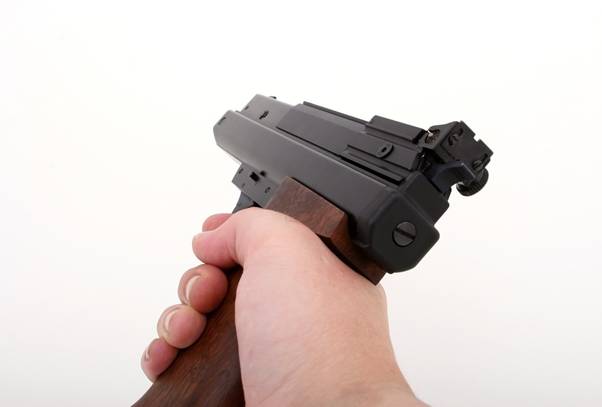The question of whether gun ownership increases or decreases safety at home is one that has attracted much debate. The idea of investing in guns, ostensibly for the protection of one’s family, can be a complex decision with serious ethical and practical implications. This article aims to explore the various perspectives on this matter, examining the statistical data and societal considerations, to provide a comprehensive understanding of the potential risks and benefits.
The Argument for Gun Ownership
Proponents of gun ownership cite personal security as a primary motivation. They argue that in emergency situations, having a firearm at one’s disposal could mean the difference between life and death. Moreover, they point out the fact that law enforcement cannot always guarantee timely intervention, and thus, a firearm serves as an immediate line of defense.
Aside from personal security, advocates also insist on the constitutional right to bear arms. In many countries, including the United States, this right is enshrined in the constitution and is seen as a fundamental freedom that allows citizens to protect themselves from potential governmental tyranny.
Lastly, gun enthusiasts often emphasize the recreational aspect of firearms. Shooting sports, hunting, and gun collection are hobbies for many, and banning guns would infringe upon these lawful enjoyments.
Gun Control Legislation
Gun control legislation varies widely around the world. Some countries have strict laws regarding gun ownership and possession, while others have more lax regulations.
There are arguments for and against each approach. Supporters of strict gun control argue that it leads to lower rates of gun violence and accidental shootings. On the other hand, opponents believe that such restrictions infringe on personal freedoms and do not effectively prevent crime.
The subject of gun control legislation is a complex one, with many factors to consider. It’s a debate that involves not just the safety and security of individuals, but also the broader aspects of societal values and freedoms. In addition, a Detroit gun lawyer notes that the legalities surrounding firearms can also be intricate, and it’s essential to understand the laws and regulations in your area if you are considering gun ownership. It’s essential to do thorough research and seek professional advice before making any decisions.
The Role of Mental Health
It is worth considering the issue of mental health when discussing gun ownership. Many argue that stricter regulations and background checks should be in place to prevent individuals with mental health issues from accessing firearms.
However, this raises concerns about stigmatization against those struggling with mental illness. Moreover, it’s crucial to note that not all mentally ill individuals are prone to violence and should not be automatically denied the right to gun ownership.
For example, in the United States, the National Rifle Association (NRA) has long opposed any restrictions on gun ownership for individuals with mental illness. They argue that this would unfairly target law-abiding citizens and infringe on their rights.
The Case Against Gun Ownership
Critics of gun ownership argue that the proliferation of firearms increases the risk of domestic accidents and suicide. Statistics consistently show a correlation between gun availability and higher rates of these tragedies.
Opponents also argue that the presence of a gun can escalate conflicts, turning what could be a non-lethal altercation into a deadly one. They believe that reducing the number of firearms can prevent such unnecessary violence.
Lastly, the case against gun ownership also highlights the danger of guns falling into the wrong hands. Without stringent regulations, firearms can easily be obtained by those with criminal intent, leading to increased crime and violence. This is a serious concern that cannot be ignored.
The Impact on Children
One of the most pressing concerns about firearms in the home is their potential danger to children. Curious and unaware of the deadly potential of guns, children can accidentally discharge a firearm, with tragic results.
Despite the risk, some argue that the solution lies in educating children about firearm safety rather than banning guns entirely. They believe that if children understand the risk, they are less likely to mishandle firearms.
However, others argue that the mere presence of a firearm in a house with children is inherently risky. They advocate for stronger laws around gun storage and access to prevent such accidents. If a gun is not present, then there is no risk of accidental discharge. It’s a simple but crucial consideration for families with children.
The Ethical Considerations
The debate on gun ownership is not just about practical implications but also hinges on ethical considerations. On one hand, there’s the argument that individuals have the right to defend themselves and their property.
On the other hand, there are ethical concerns about the societal implications of widespread gun ownership. These include the potential for increased violence, the risk to children, and the question of whether it is morally acceptable to potentially take a life in self-defense.
Ultimately, the ethical aspects of this debate are deeply personal and can vary greatly depending on one’s own beliefs and values.
Making an Informed Decision
The decision to invest in guns for the sake of family safety is a complex one that requires careful consideration. It involves balancing personal security needs with the potential risks and ethical implications.
Making an informed decision requires understanding the various perspectives on this issue, being aware of the statistical data, and considering the societal implications. Regardless of where one stands on the issue, it is clear that the debate on gun ownership is a nuanced and multifaceted one that extends beyond the simple binary of being for or against it.
In conclusion, investing in guns for the protection of one’s family is a decision that should not be taken lightly. It involves considering personal safety, constitutional rights, mental health concerns, and ethical considerations. Thorough research and careful consideration are essential to make an informed decision that takes into account all these factors. Before making any decisions about gun ownership, it is crucial to have a comprehensive understanding of the issue and to carefully weigh the potential risks and benefits. It is ultimately up to each individual to decide whether investing in guns will provide the desired level of safety for their family. So, it is essential to consider all aspects before making a decision that could have lasting consequences.


